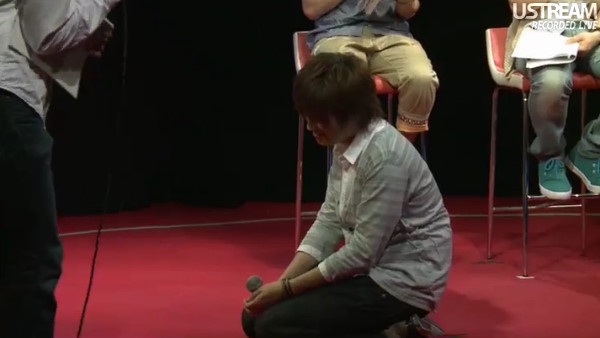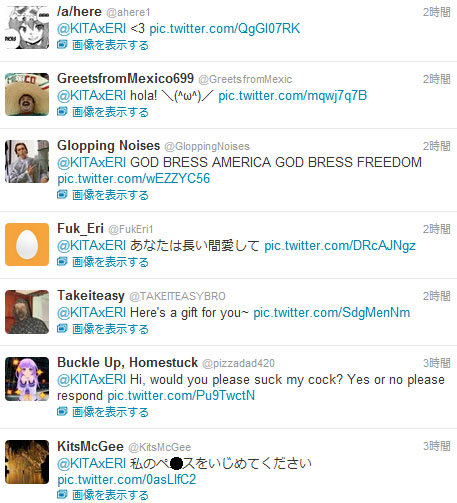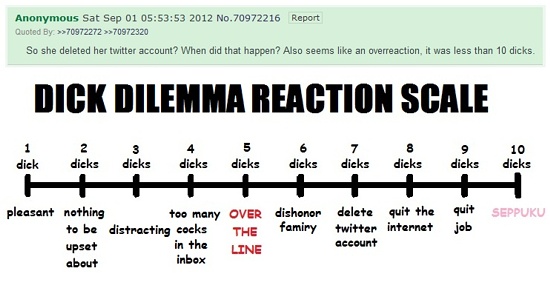by Rhea Vichot
This past summer, Japan saw two stories of wildly different levels of political and cultural importance. One was the revelation in July that officials at a Middle School in the small city of Otsu (just outside of Kyoto) had suppressed multiple accounts of bullying, driving a student to commit suicide. The second was a PR stunt planned by animation studio Silver Link (and their key sponder King Records) to promote their summer television series Kororo Connect (コ コロ・コネクト). The commonality between these seemingly disparate events was the role of online communities such as 2ch (2-channel or 2ちゃんねる) in their discussion of the latter.
The Otsu Incident involved a middle school that was accused of covering up the bullying of a 13-year old student, who was beaten up by other students and forced to perform humiliating and illegal acts including shoplifting and acting out his own suicide. The student in question committed suicide on October 11, 2011. However the school, and perhaps the government covered up the bullying incidents and denied that the suicide was related to any bullying going on. The incident ultimately led to the victim’s father filiing a ¥77,000,000 (~$964,000) lawsuit. The news of the actions of the bullies, and the resulting cover-up by both the school and the municipal government shocked the nation. It also amplified a national conversation on school bullying as well as bullying in other spheres, such as the workplace and is colloquially known as “power harassment”, or “pawahara”, in Japanese culture.
The second incident initially garnered little attention and requires a bit of background explanation. Voice acting, like other entertainment jobs, is a difficult profession to break into. Mitsuhiro Ichiki is an up and coming, but struggling voice actor. He took part in what he thought was an audition for a role in the animated adaption of the light-novel series Kokoro Connect, scheduled for the summer television season. Unbeknownst to him, the audition was a part of a prank conducted by Takahiro Yamanaka, a producer for the television series and employee of King Records, which is producing the series. Ichiki was told he was auditioning for a role new to the adaptation. Yamanaka placed a hidden camera in the room, had fake voice actors also auditioning for the role, along with the staff for the series. Ichiki was shown fake dialogue and fake character design for his role and, during the audition, Ichiki was asked to say various lines in different ways, with the director of the series insisting he say it with the loudest voice possible.
During a live event promoting the upcoming series, which was streamed on Ustream and NicoNico Douga (the largest online video site in Japan and a popular destination for paid streaming video, in many ways analogous to both Youtube and Hulu), it was revealed to ichiki that his audition was a prank. An edited version of his audition reel, with narration by Takuma Terashima, one of the main voice actors of the series, mocked Ichiki, his audition, and his career as a voice actor. He was given a job as “Publicity/Promotional Chief” and asked to promote the show at other live events and perform certain tasks (such as raise the show’s twitter follower count to 30,000 in a week) or face a “punishment game”. One such punishment game involved Ichiki being electrocuted, again streamed online. During several episodes of the Kokoro Connect radio show (a typical avenue for promoting a tv series), voice actors for the series, specifically Terashima and Hisako Kanemoto, mocked the event and Ichiki personally.

The events above went unnoticed until a tweet by Kikuchi Hajime (of the band Eufonius) was discovered, which referenced the Ichiki Incident. The Eufonius tweet caught the attention of 2ch, and they saw the story as a case of bullying. In addition, Ichiki told his story to extremely well-regarded and popular voice actor, Tomokazu Sugita, on his radio show and the story garnered further attention among the online communities following the incident. Finally, further digging found that Ichiki had been subject to similar treatment two years prior, during work on another anime series, which made the castigation of Yamanaka that much more fervent.
2ch users responded by blasting Yamanaka, Terashima, Kanemoto, and other Kokoro Connect voice actors over twitter. In addition, 2ch members and other fans dropped pre-orders of the show’s Blu-Ray and DVD releases (which is where companies make their money on tv shows and poor pre-order sales are used as indicators of a shows profitability and continued viability). Another tactic was leaving hundreds of 1-star reviews on the Amazon.co.jp for the series DVD and Blu-Ray pages, stating their displeasure for the incident. One such review states:
“アニメはかなり面白かったのに。こんな事件があってはな。
あんな奴等に金を支払うのは嫌です。
キングレコードの物は今後買いません。
原作者が可哀想ですね。”“Even though the anime was really interesting, this incident has occurred.
I hate giving money to guys like that. I won’t buy anymore things from King Records.
I feel bad for the original author [of the light novels]”
The resulting pressure caused the radio show to be dropped and for King Records and animation studio Silver Link to issue an apology. However the delay and tone with which the apology was delivered was read by fans and 2ch users as insincere and a ploy to salvage insurmountably bad publicity.
Members of 4chan’s japanese-culture related boards: /a/ (anime), /jp/ (Otaku Culture), and /v/ (Video games), also noted and responded to news of the incident. While some members participated in a similar manner as other 2ch users on twitter, others gathered information and spread the story to various anime-focused online communities on other social media platforms. The story was picked up and discussed on other communities such as Reddit’s r/anime, Tumblr, the website Sankaku Complex, Gawker media website Kotaku, as well as several independent blogs had a more journalistic focus, taking information from /a/ users or from 2ch itself and attempting to ferret out correct information from rumor.
The language barrier and the rumor mill that was generated by news of the event on 2ch precipitated many misunderstandings and unsubstantiated claims. This combined with 4chan’s many times vulgar strategies at garnering attention, introduced certain other sub-events, the most egregious being the targeting of Kokoro Connect voice actress Eri Kitamura’s (who was misattributed as being in a relationship Producer Yamanaka) twitter account with explicit photographs, prompting the actress to delete her account. In addition, director Yutaka Yamamoto, who goes by the sobriquet “Yamakan” was mistaken for Takahiro Yamanka briefly. The information surrounding the case was corrected and organized, in typical Anonymous fashion, through the use of pastebins and a repetition of threads across /a/ during the period.

There was also fallout by 4chan membership itself, either calling out people for acting before learning all of the facts or simply for caring too much about the incident itself. There was also inter-community tensions over the incident between the three sub-boards on 4chan as well as between Japanese fans and 4chan denizens.
While the Ichiki incident is a relatively minor story, it is notable in the ways in which the 2ch community asserted its outrage over the incident, calling it out as bullying, as well as how non-Japanese communities like 4chan picked up the story and felt invested in both reporting and responding as well, with varying levels of outrage, shock, and vulgarity. In addition, there are some interesting parallels in which point towards a interesting directions in looking at the cultural and information exchanges between these online communities. Fandom of Japanese popular culture serves as one medium for discussion, but the mutual sentiments towards bullying in general (in the American context as well as the Japanese context) seemed to serve as another. Of course, the interaction between these two communities is fraught with tensions and opportunities for enmity and miscommunication, but the fact that there is such an interaction should cause us to pause momentarily and analyze the role in which research on online communities has been dominated by anglophone communities and platforms.
Relevant Links
http://pastebin.com/EvntSeCV
http://www.japantoday.com/category/national/view/parents-dissatisfied-following-meeting-at-school-of-bullied-suicide-victim
http://www.sankakucomplex.com/2012/07/08/outrage-at-shiga-schoolboy-suicide-scandal/ (ads NSFW)
http://kuroshinko.wordpress.com/2012/09/04/the-kokoro-connect-issue-and-bullying-in-japan/
http://japandailypress.com/13-year-old-bullied-into-practicing-his-own-suicide-before-killing-self-066106
http://re-jinx.me/2012/09/01/after-work-beer-time-the-great-kokoro-connect-shitstorm/
http://forums.animesuki.com/showthread.php?t=114454
http://kotaku.com/5939184/anime-practical-joke-goes-over-the-line-and-incites-mass-flaming



